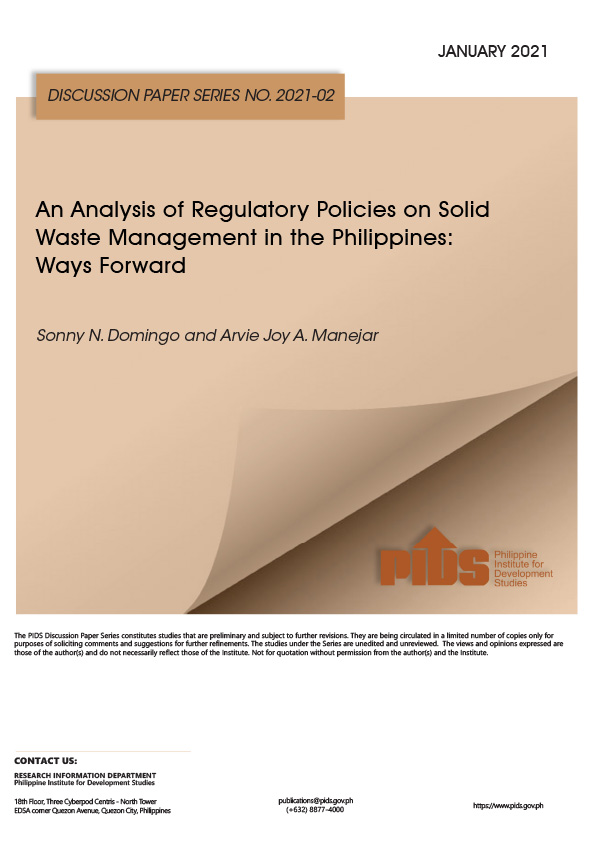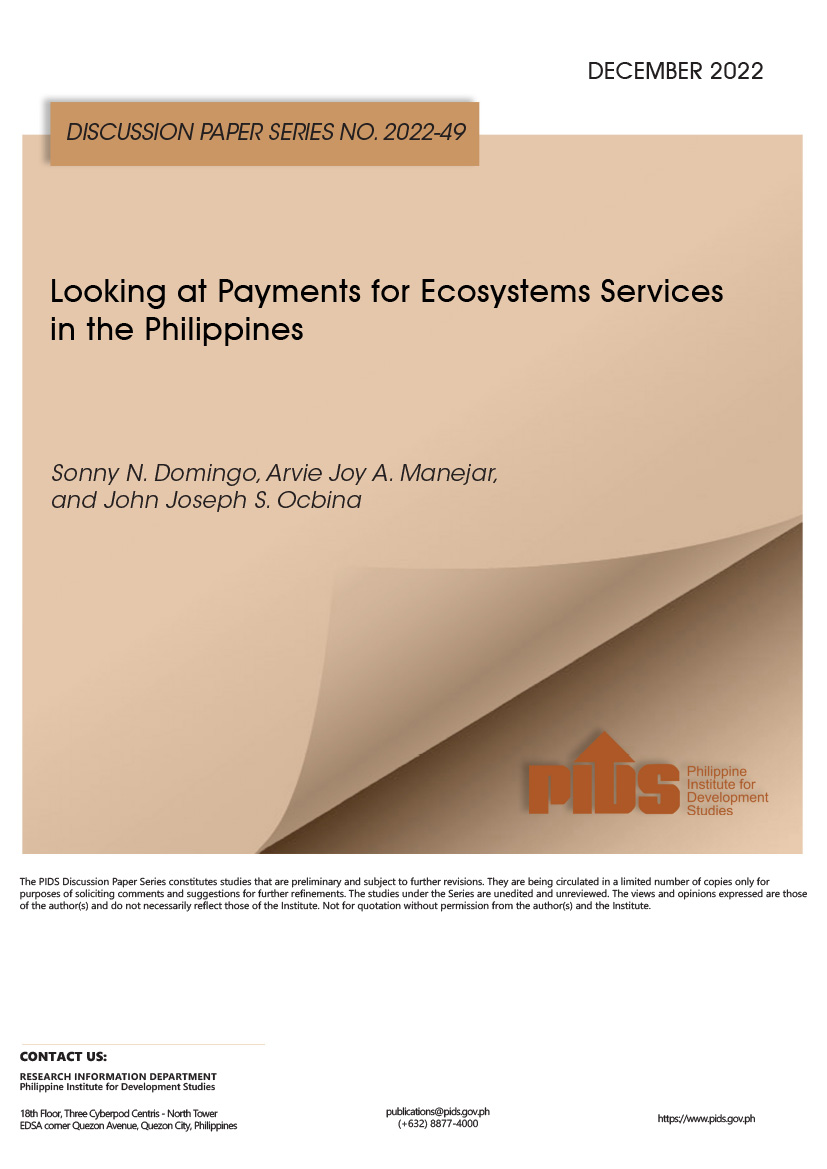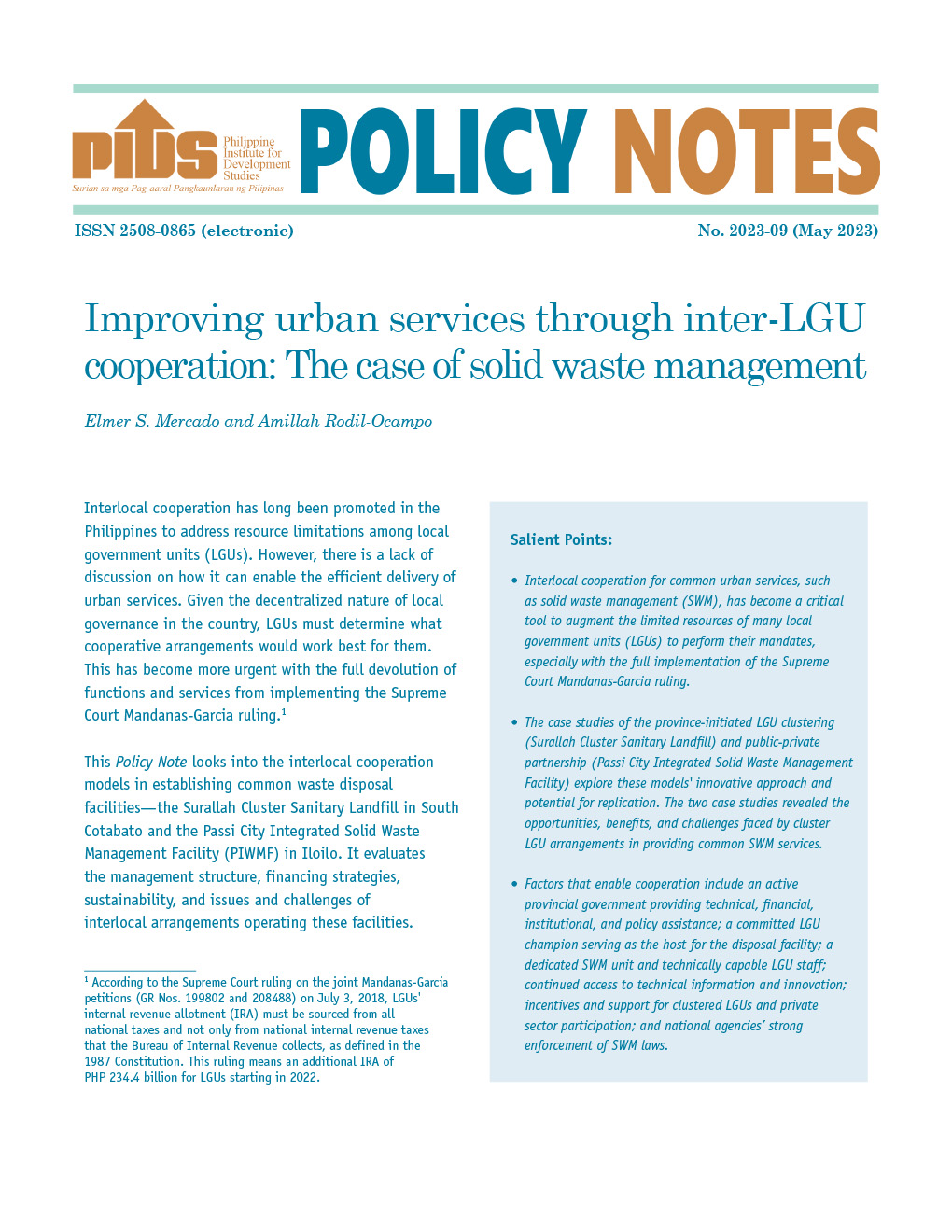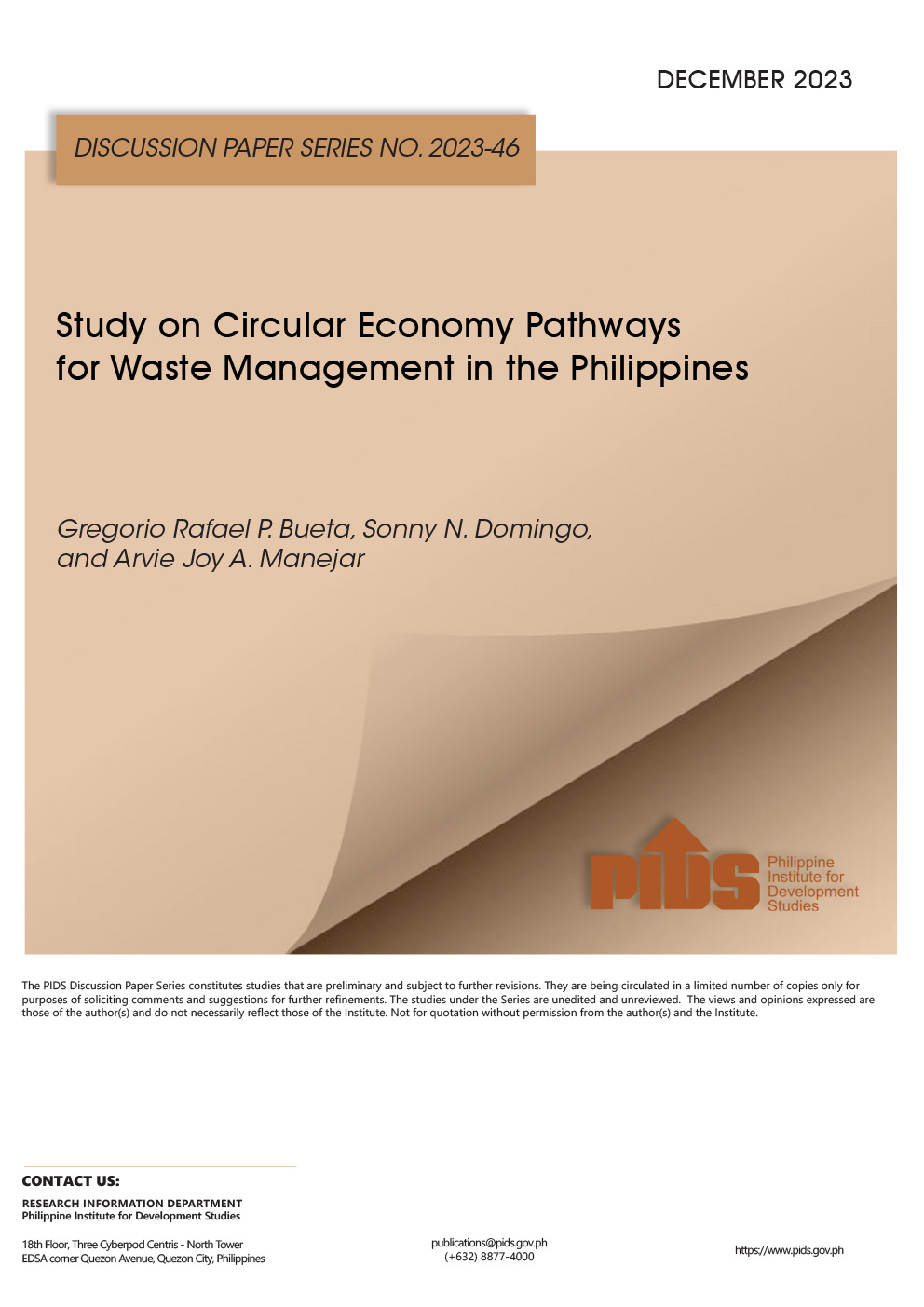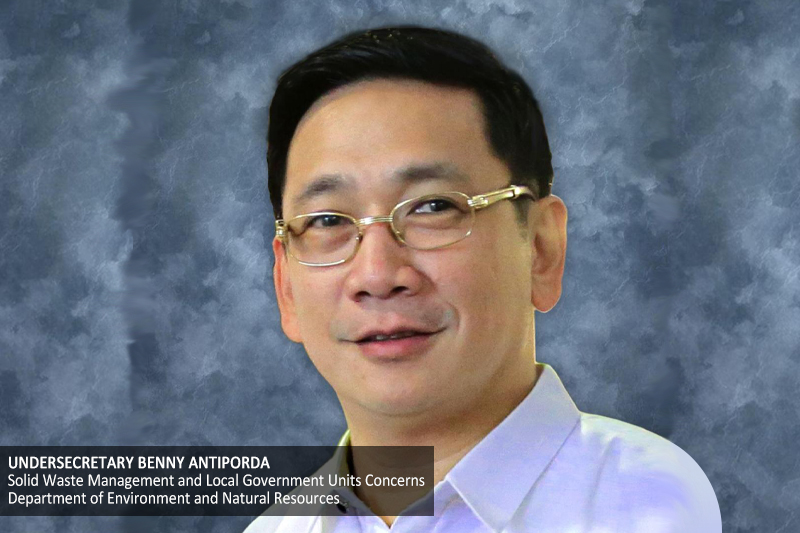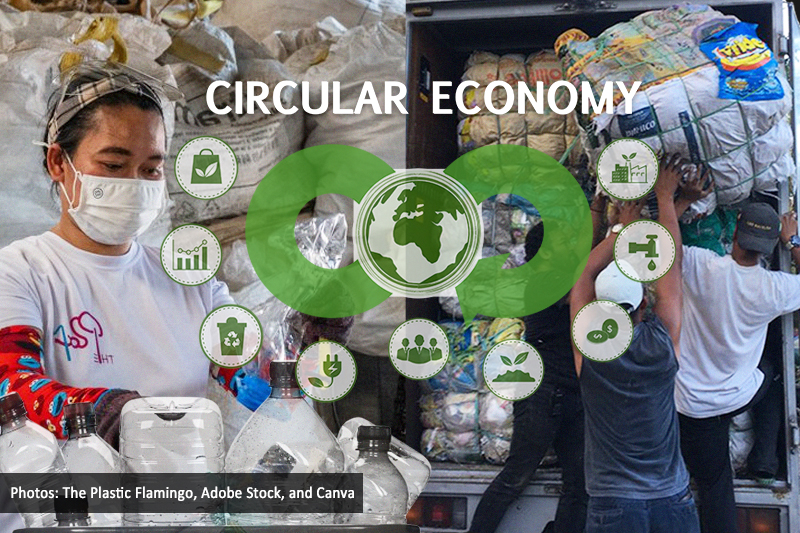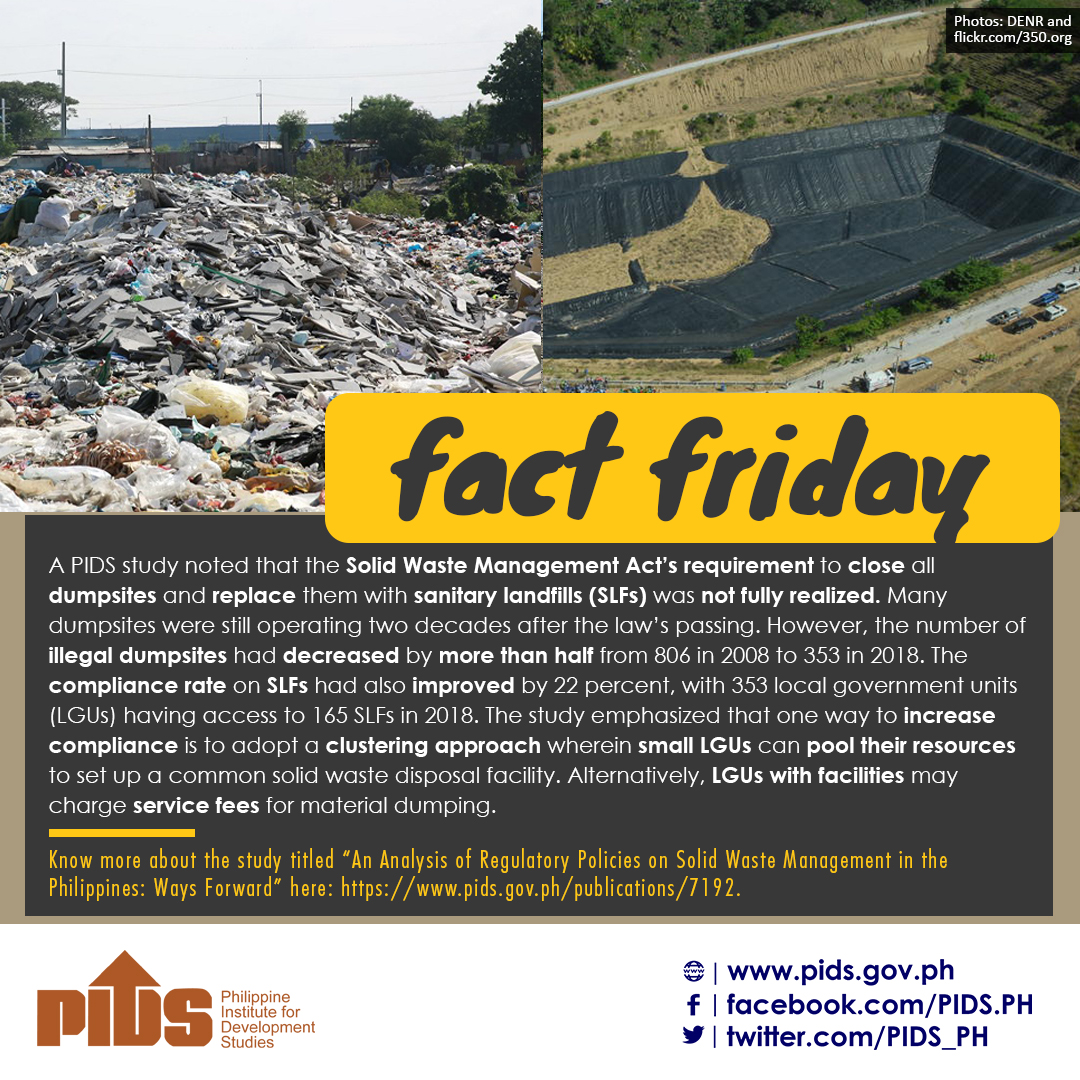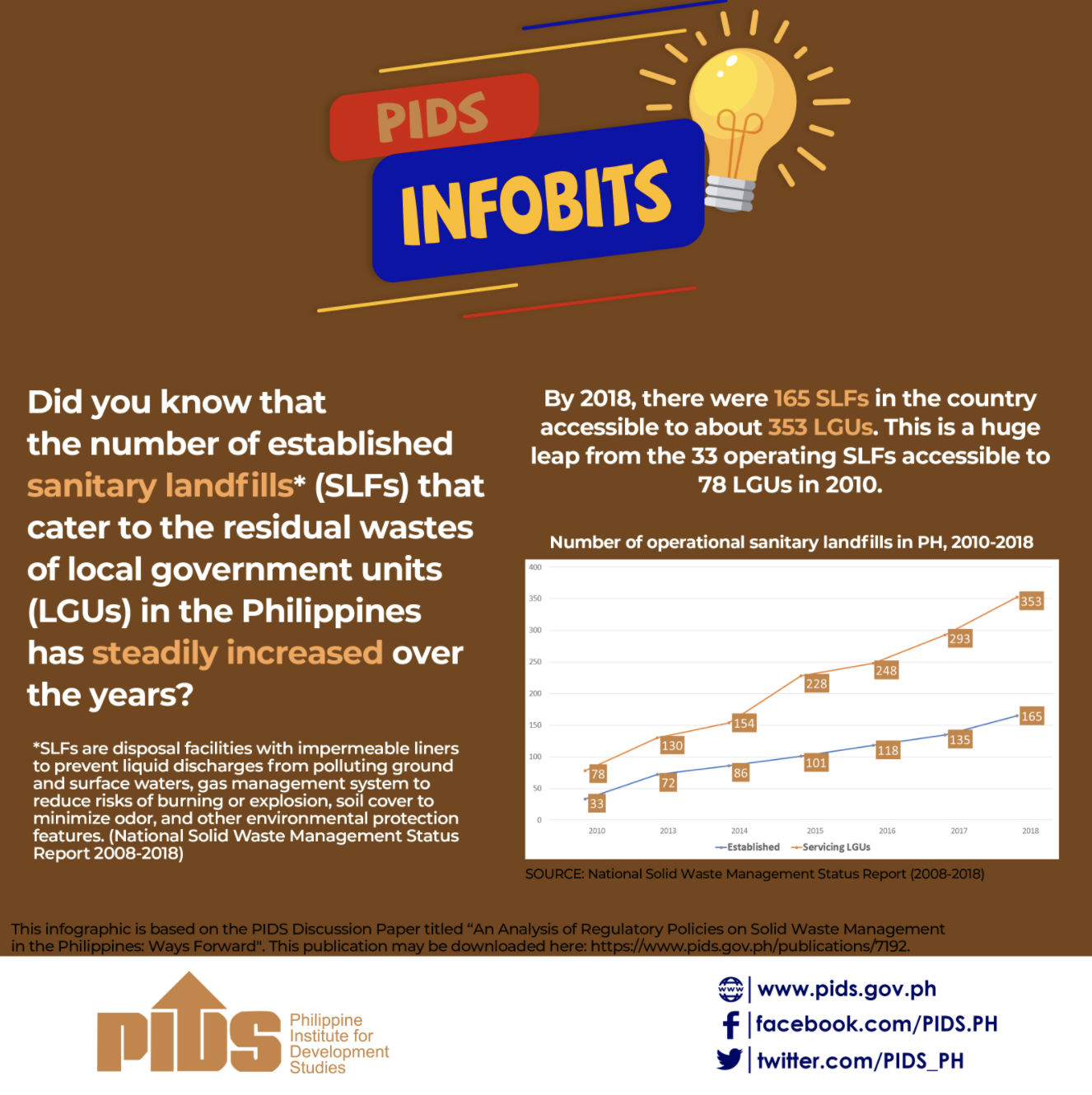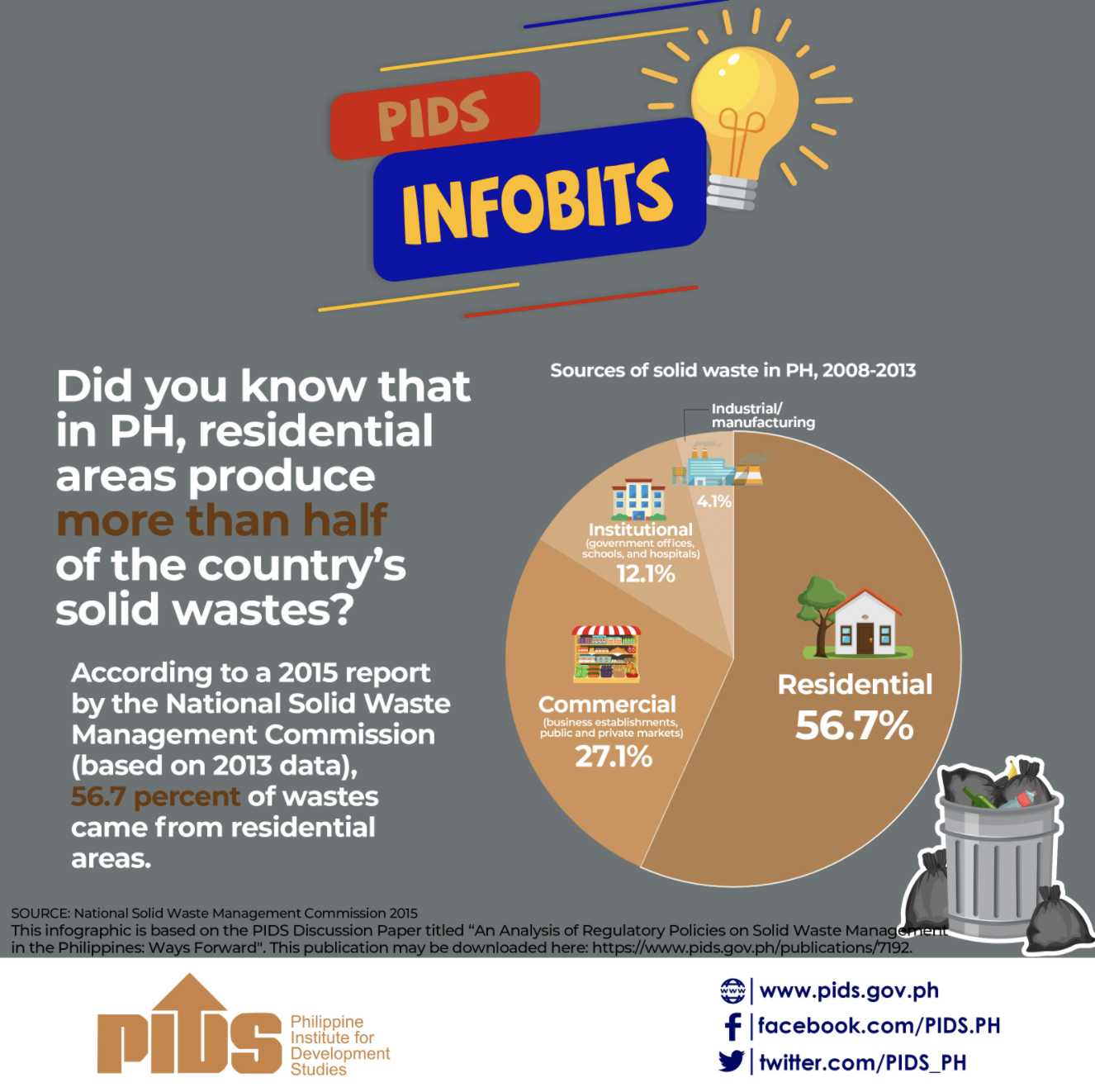Waste management issues have been hounding both urban and rural communities for decades. The passing of Republic Act 9003, or the Ecological Solid Waste Management Act of 2000, was meant to ensure the protection of public health and environment while encouraging resource conservation and recovery and public cooperation and responsibility. Among its critical provisions were the formal devolution of waste management to local levels, including forced closure of illegal dumpsites, investment on facilities, and reduction and proper treatment of solid wastes. This study looked into the implementation of the law in both the national and subnational levels through a desk review, conduct of case studies in selected areas, and processing of available quantitative data. Results showed varying implementation templates across study sites reflecting different enabling mechanisms and replicable initiatives. Documented best practices include the legal waste facility transition of the Payatas dumpsite in Quezon City and the organization of its informal economy; the clustering of waste management service of Teresa, Rizal and its province-wide incentive mechanism and partnership with construction companies; the market linkages for revenue generation; and the strong partnership between the local government unit (LGU) and civil service organizations in San Fernando, Pampanga. The overly simplistic transfer of responsibility to LGUs have largely resulted in two decades of mediocre policy grounding. Common avenues for improvement were also identified, including the need to fast track transition timelines; augment national and local government complementation; invest on appropriate technologies and facilities; and sustain public and private sector engagements.
Comments to this paper are welcome within 60 days from date of posting.
Email publications@mail.pids.gov.ph.
Citations
This publication has been cited 13 times
- BAN Toxics . 2023. BAN Toxics recognizes Women’s multiple burdens; Calls for protection and empowerment. Journal Online.
- BAN Toxics . 2023. BAN Toxics recognizes Women’s multiple burdens; Calls for protection and empowerment. Journal Online .
- Bautista, Jane. 2023. DENR wants better lives for scavengers. Inquirer.
- Cai Ordinario . 2021. Assimilate informal workers to solve waste issues–PIDS. Business Mirror.
- Cai Ordinario . 2021. Study cites ‘flaw’ in Solid Waste Management law. Business Mirror.
- Cordova, Judy. 2022. How organizations, firms, communities are addressing massive food waste in the Philippines. News5.
- Elyssa Lopez . 2021. Are PH consumer goods companies doing enough to tackle plastic waste?. Philippine Center for Investigative Journalism.
- Elyssa Lopez . 2021. Are PH consumer goods companies doing enough to tackle plastic waste?. Rappler.
- EnviroNews . 2023. Women’s Day: Recognising women’s multiple burdens, group calls for protection, empowerment. EnviroNews .
- Jenina P. Ibañez . 2021. Too much expected, too little given to local governments in waste management — PIDS study. Business World.
- Panay News . 2021. No time to waste. Panay News.
- Patricia B. Mirasol . 2021. Recyclable waste collection app expands service to Muntinlupa and Las Piñas. Business World.
- Philippine Daily Inquirer. 2023. From waste pickers to eco-partners. Philippine Daily Inquirer.

